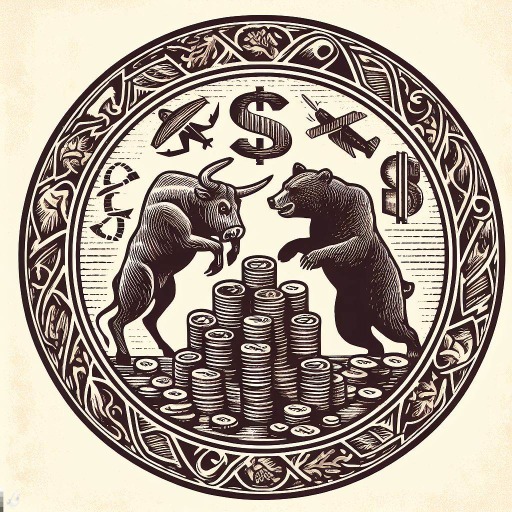Game Theory-game theory tools for strategic analysis
AI-powered Game Theory Analysis
This GPT has graduate-level knowledge of game theory and its application to economics, with a focus on Industrial Organziation and Political Economy. It also features a beta version of a 2x2 Games Solver. Try it out!
Knowldege Files 📚
Let's try the 2x2 Games Solver ⚙️
Related Tools
Load More
DeepGame
Play any story as a character. You decide what to do next. Type '/visualize' to get an image of the current moment of the story.

Economics + Math 📊
Error checking and explanation in Econ and Math. Designed to support learning by simplifying and clarifying complex subjects in these disciplines. It serves as an excellent support for students & professionals in the field. Last updated May 30, Feedback

Strategy
Use military strategy to solve problems you can't solve (Family disputes, workplace problems, etc.). Talk to me about your work or life problems.

Microeconomics
Expert in advanced microeconomics, engaging in thorough explanations and tailored learning experiences.

Economics Expert GPT
Economic theory applied to: discussion, current events, historical trends, anything imaginable.

Expert Economist
Expert economist with access to real-time data.
20.0 / 5 (200 votes)
Introduction to Game Theory
Game Theory is a mathematical framework used for analyzing situations where the outcome of a participant's decision depends on the choices made by others. It is designed to study strategic interactions where each participant considers the potential decisions of others when making their own choices. A classic example is the 'Prisoner's Dilemma,' where two suspects must decide independently whether to confess to a crime or remain silent. Their decisions affect not only their own outcomes but also that of the other, illustrating the interconnected nature of strategic decision-making.

Main Functions of Game Theory
Analyzing Strategic Decisions
Example
Firms deciding on pricing strategies in an oligopoly.
Scenario
In an oligopoly, firms must decide on pricing while considering the potential reactions of competitors. Game theory helps firms anticipate these reactions and choose the optimal pricing strategy.
Designing Auctions
Example
Government auctioning off spectrum licenses.
Scenario
Governments use game theory to design auctions that maximize revenue and ensure fair competition among bidders, such as when auctioning off licenses for radio frequencies.
Negotiation and Bargaining
Example
International trade negotiations.
Scenario
Game theory is used to model and analyze negotiation strategies between countries in trade agreements, helping each party understand the potential outcomes of different negotiation tactics.
Ideal Users of Game Theory
Economists and Policy Makers
Economists use game theory to analyze markets.

Using Game Theory: A Step-by-Step Guide
Visit aichatonline.org for a free trial without login, no need for ChatGPT Plus.
Start by visiting the website to gain access to various tools and resources related to game theory without any financial commitment.
Understand the Basics of Game Theory
Familiarize yourself with fundamental concepts like Nash Equilibrium, dominant strategies, and payoff matrices. These are essential to model and analyze strategic interactions.
Identify the Type of Game You Are Analyzing
Determine whether the game is cooperative or non-cooperative, zero-sum or non-zero-sum, and whether it involves sequential or simultaneous moves.
Formulate the Payoff Matrix
Construct a payoff matrix that outlines the rewards for each player based on their potential decisions. This matrix will serve as the basis for analyzing the game.
Analyze Equilibria and Outcomes
Use tools or manual calculations to find Nash Equilibria or other relevant outcomes. Consider both pure and mixed strategy equilibria, depending on the game type.
Try other advanced and practical GPTs
😏 Confident Limitless Artificial Intelligence
Unlock limitless potential with AI-powered precision.

Social Media Assistant - videos & trends
AI-powered insights for TikTok success.

LDA - Proposal Writer v4
AI-Powered Design Proposals in Minutes.

You Tube Chapter Wizard
AI-powered chapters for seamless video navigation.

Merlin, the Job Application Wizard 1.2.5
AI-powered support for crafting perfect job applications.

Viral AI Social media Profile Image maker
AI-Powered Social Media Avatar Creation
Text umschreiben lassen
AI-powered rewriting for clear, original content.

More or Less
AI-powered visual transformations.

こまめの「ブログ・SEO対策」 困ったらここに質問! 累計売上40億の専業ブロガーのノウハウ提供
AI-powered blogging and SEO insights.

Humanizer Content
AI-powered human-like content refinement

AdSignals Visualizer - Your Creative Ads Assistant
AI-driven ads that captivate.

WebPilot
AI-Driven Insights for Every Link.

- Academic Research
- Business Strategy
- Policy Analysis
- Negotiation Tactics
- Behavioral Economics
Top 5 Q&A About Game Theory
What is Game Theory and why is it important?
Game Theory is a framework for understanding strategic interactions between agents. It is crucial in economics, political science, and psychology, helping to predict and analyze decisions in competitive and cooperative environments.
How can I apply Game Theory in real-world scenarios?
Game Theory can be applied in various fields such as economics, business strategy, and even everyday life. It helps in making informed decisions in competitive situations, like pricing strategies, auctions, and negotiations.
What are the common types of games analyzed in Game Theory?
Common types include cooperative vs. non-cooperative games, symmetric vs. asymmetric games, zero-sum vs. non-zero-sum games, and simultaneous vs. sequential games.
How do I calculate Nash Equilibrium?
To find Nash Equilibrium, analyze each player’s strategy and see if any player can improve their outcome by changing their strategy while others keep theirs unchanged. The equilibrium occurs when no player has an incentive to deviate.
What tools are available to solve Game Theory problems?
There are various software tools, like Gambit and Mathematica, that can solve complex game theory problems. Additionally, many online resources and calculators are available for more straightforward analyses.